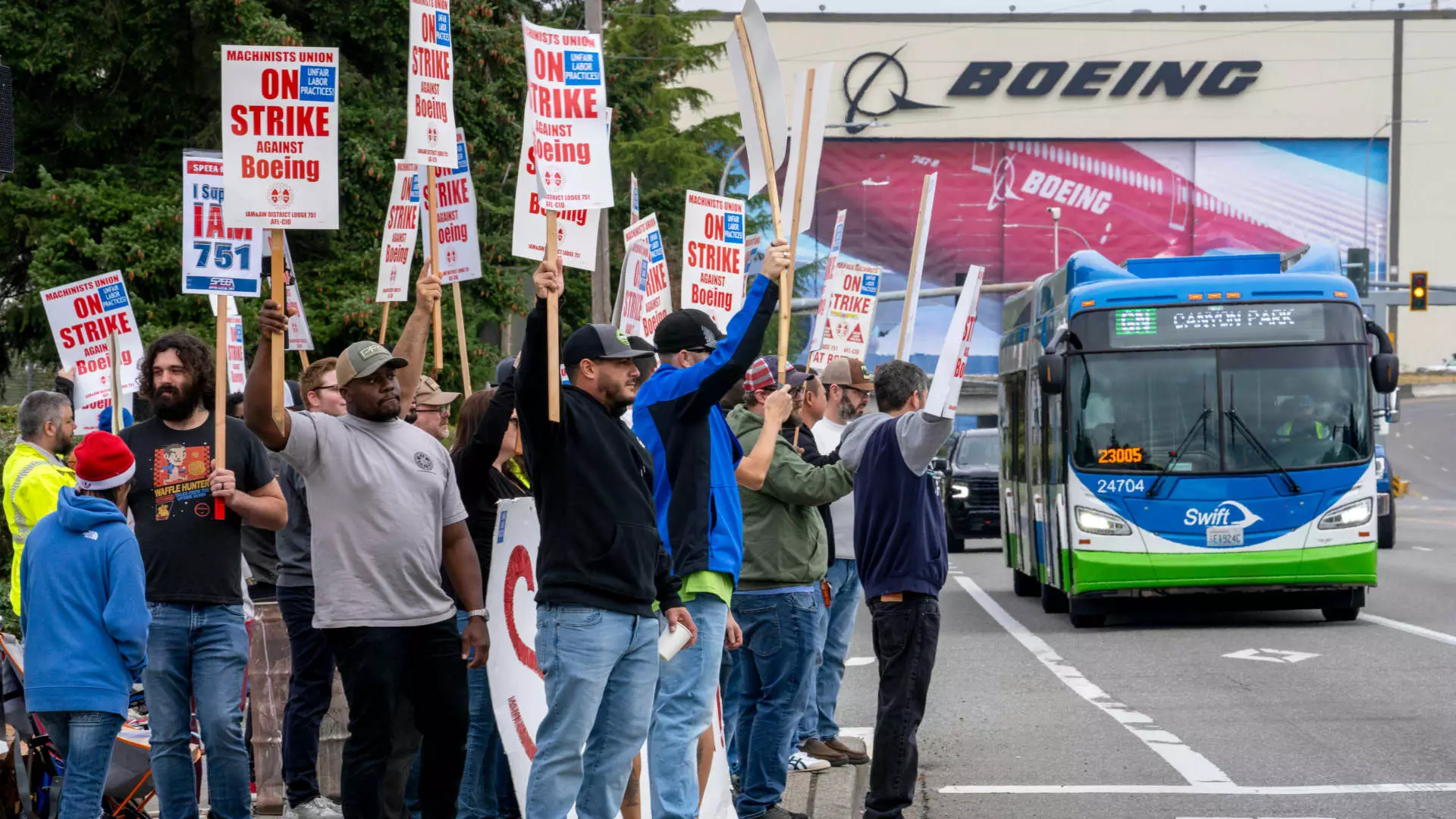Boeing is currently facing a significant challenge as it temporarily furloughs thousands of its U.S. executives, managers, and support staff amidst an escalating machinist strike. The move, described by CEO Kelly Ortberg as a necessary step to preserve cash flow, underscores the dire situation the aerospace giant finds itself in. Following a breakdown in labor negotiations, over 30,000 machinists in the Seattle area and Oregon voted overwhelmingly to strike, which began just after midnight on Friday. This overwhelming rejection of a new labor contract laid bare the frustrations and economic struggles that many employees are grappling with, especially amid rising living costs.
The negotiations between Boeing and the machinists’ union were marred by dissatisfaction over the proposed contract terms. Although Boeing offered a substantial 25% raise, many workers felt that this did not adequately compensate for the skyrocketing cost of living in the Seattle region, nor did it address their desire for restored pension plans. The union’s statement of frustration reflects a broader sense of disillusionment among employees, highlighting that financial compensation must align not only with market history but also with present-day realities.
This sentiment showcases a growing divide between corporate objectives and employee needs, potentially crippling workforce morale and loyalty. Boeing’s decision to furlough employees, albeit a necessary financial maneuver, could exacerbate these issues further, cultivating an atmosphere of uncertainty and discontent.
In the wake of this labor disruption, Boeing is implementing strategic measures to navigate the financial storm. Ortberg announced a plan to furlough affected employees for one week every four weeks during the strike, along with commensurate pay reductions for himself and senior staff. This initiative is aimed not only at conserving resources but also at demonstrating leadership solidarity during challenging times.
Furthermore, Boeing’s Chief Financial Officer, Brian West, indicated that the company would tighten its financial belt by freezing hiring and halting raises while temporarily releasing non-essential contractors. Such steps reflect an acute awareness of the company’s current predicament, grappling with $60 billion in debt and past crises related to quality and safety. The stakes are high, as the financial repercussions of this strike will deeply influence Boeing’s trajectory, hinging on its duration and the evolving dynamics between the company and its labor force.
Despite these challenges, Ortberg reassured stakeholders that essential activities vital for safety and quality, along with customer support and certification programs, will continue unabated. Production lines, such as those for the 787 Dreamliner, are prioritized at a nonunion facility in South Carolina. This commitment to critical operations emphasizes Boeing’s intention to uphold its production capabilities while managing labor relations, showcasing a multi-faceted approach to weathering the crisis.
As Boeing navigates this turbulent chapter, the convergence of labor unrest, financial prudence, and operational integrity will define its path forward. The coming months will be pivotal, determining not only the resolution of the current strike but also Boeing’s long-term sustainability in an increasingly competitive and high-stakes industry.

